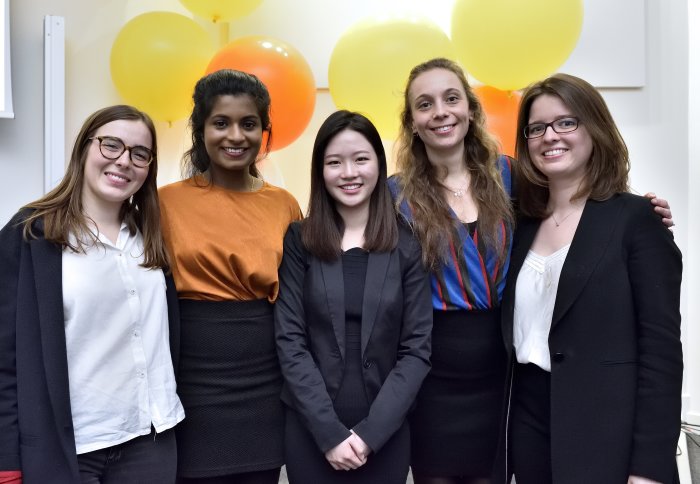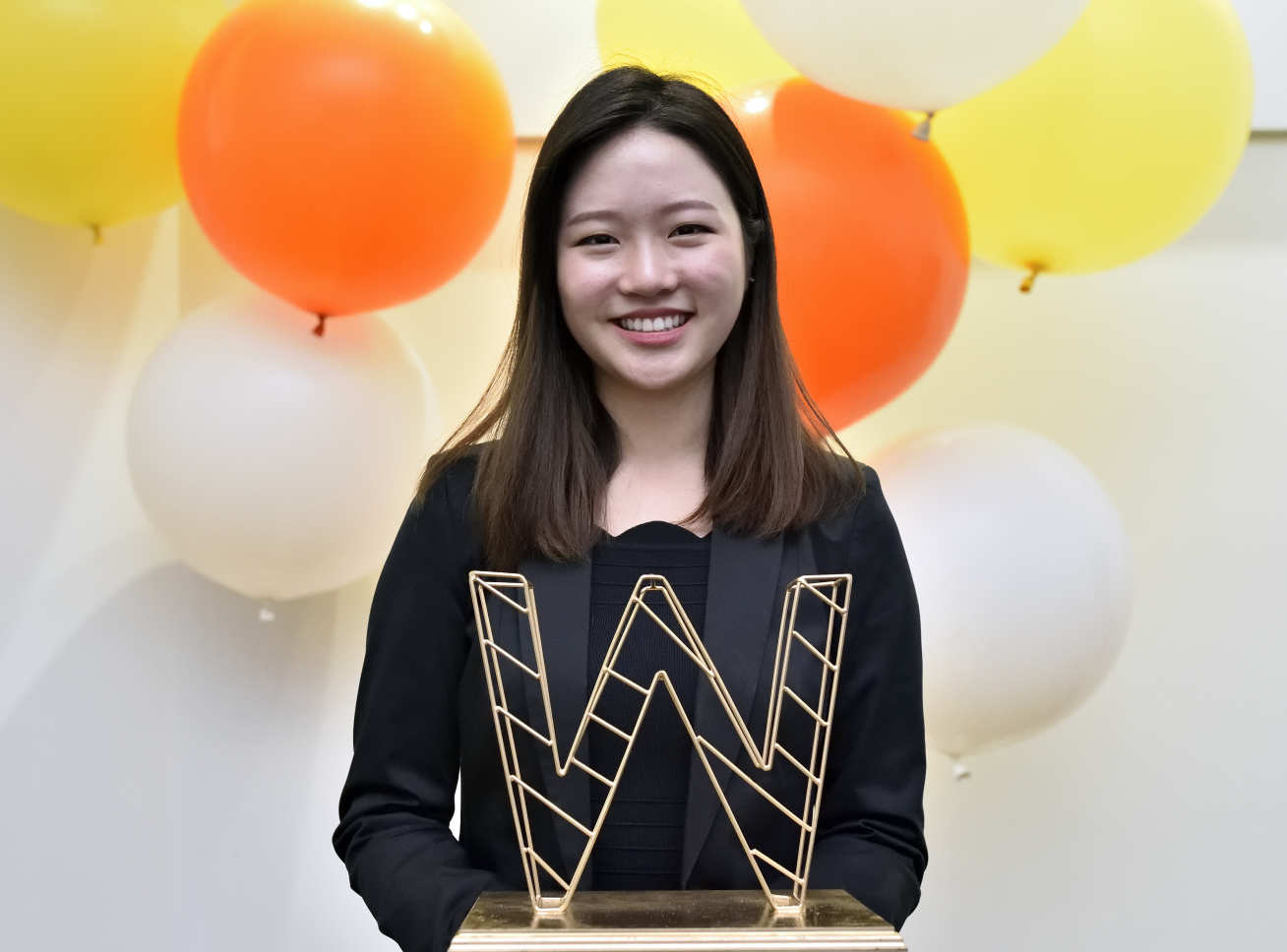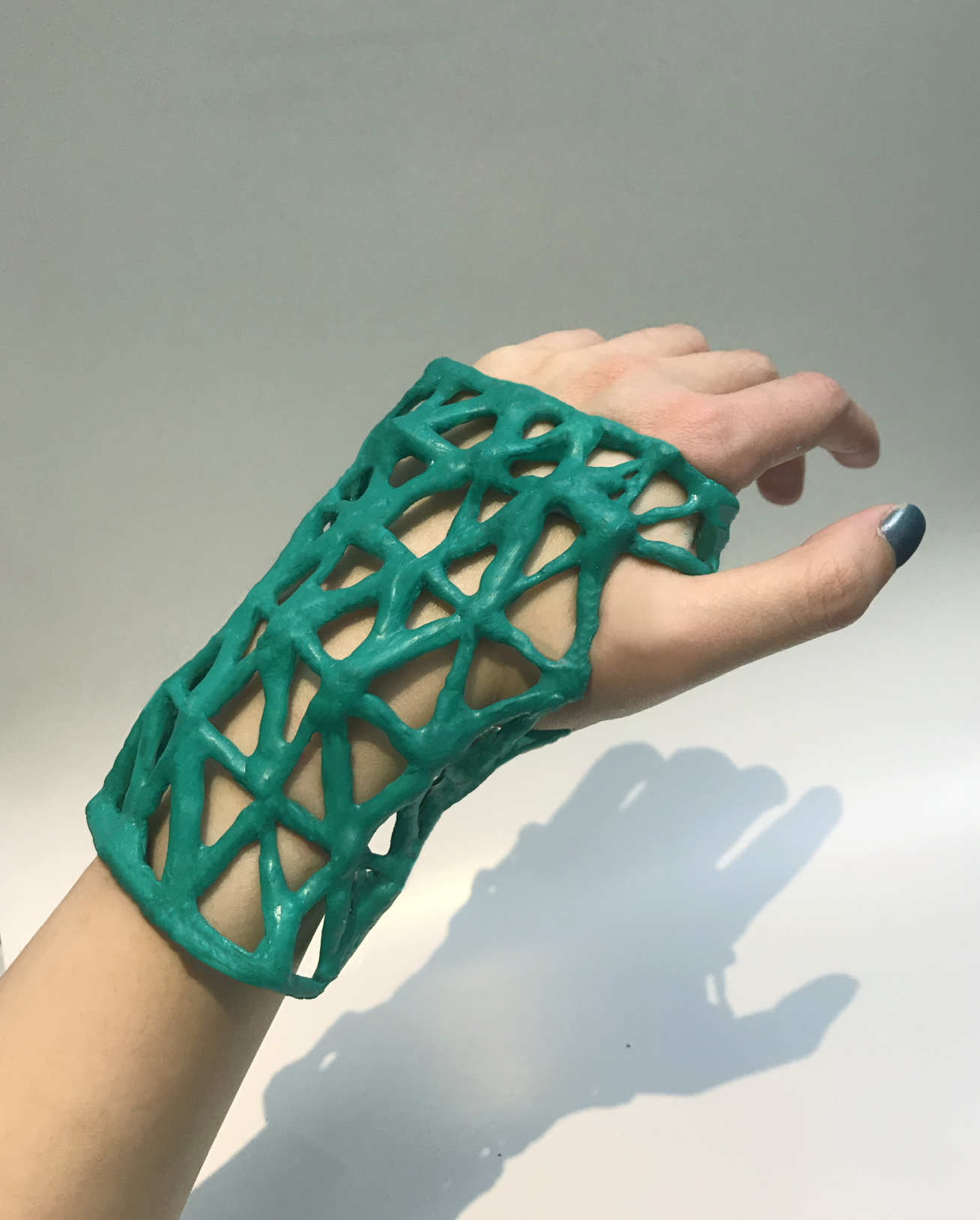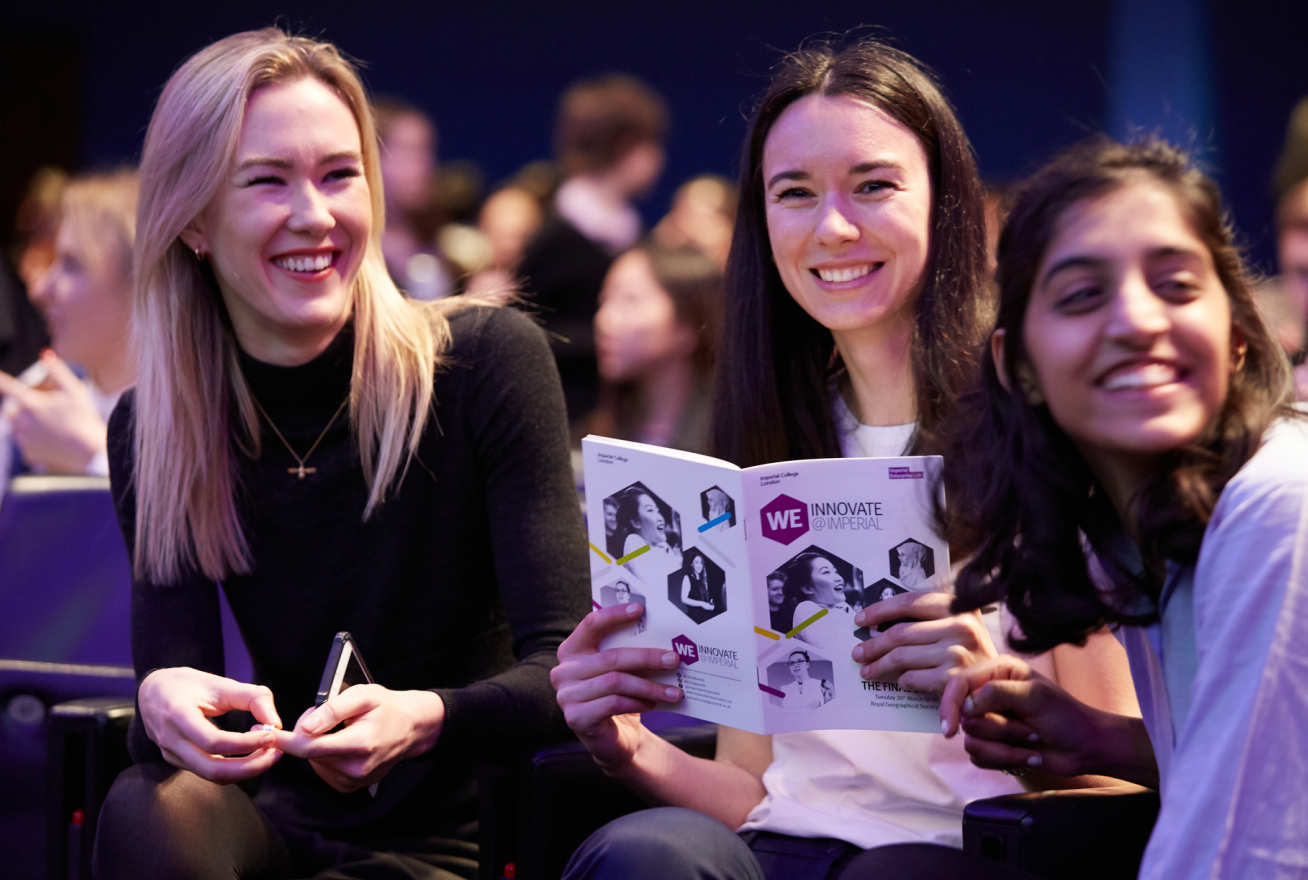Next-generation washable cast for broken limbs wins WE Innovate top prize

WE Innovate finalists
An undergraduate student from Imperial College London has invented a new kind of orthopaedic cast that is breathable, washable, and easy to apply.
Suchaya Mahuttanatan, a Biomedical Sciences student, won £15,000 in the WE Innovate Final for Cadget, a pioneering cast which she says could “revolutionise the bone healing experience.”

Cadget is made using a specially engineered material that can be activated to turn from flexible to permanently stiff in just a few minutes. A clinician would simply mould the material around the injured limb, and wait for it to harden.
WE Innovate is a women’s entrepreneurship programme run by Imperial Enterprise Lab which is designed to inspire and accelerate the progress of women entrepreneurs. At the final, held on Thursday 7 March during Enterprise Month 2019, five finalists battled it out in the hope of winning a share of a £30,000 prize pot, sponsored by BP.
Revolutionising bone healing
Orthopaedic casts, which are used to support and protect broken bones, are usually made from plaster or fibreglass. They tend to be bulky, uncomfortable for patients, and must be kept dry – making bathing difficult. Current alternatives, such as 3D printed casts, are expensive and rely upon equipment that is inaccessible in many parts of the world, Suchaya says.

Cadget is waterproof, and its lattice design means it is breathable – making it less itchy for patients and more hygienic. It can also be individually moulded to each patient before it stiffens, making for a more comfortable experience.
Unlike plaster or fibreglass casts, Cadget would require no additional casting equipment to apply. This makes the process considerably faster, and allows it to be used in isolated areas where such equipment is inaccessible.
Suchaya is currently developing her prototype, and has already lined up five hospitals in Thailand to pilot Cadget once her product is ready.
The WE Innovate final was judged by a panel of experts, including Kate Bingham, Managing Partner at SV Life Sciences, Sir Patrick Vallance, Government Chief Scientific Advisor, Sandra Eager, Ventures Principal at BP Ventures, and Priya Guha, Venture Partner at Merian Ventues.
Pioneering women
Several additional prizes were awarded during the final. Two teams were jointly awarded second prize, taking home £5,000 each. The first was Bio-F Solutions, led by PhD students Marine Valton and Laura de Arroyo Garcia, which is developing sustainable and organic alternatives to synthetic fertilisers. The second went to postgraduate student Sophie Paisley- Marshall, founder of Orbit Materials, who is creating “carbon-negative” construction materials from waste products.
It is wonderful to see this community of female student entrepreneurs grow Professor Maggie Dallman
For the first time the audience was also asked to select a team to win a £5,000 prize. The prize was named in memory of former WE Innovate participant Lauren Dennis, who passed away last year. The Lauren Dennis Award went to Changavy Kajamuhan, who is co-leading the development of Tommy, a non-invasive wearable device which uses machine learning software to help accurately the glucose levels in people with type 1 diabetes.
Two prizes, funded by the Engineers in Business Fellowship, were also awarded to outstanding engineering projects from the WE Innovate cohort. £1,500 each went to Orbit Materials and a semi-finalist team called Rock n Roll, who are developing collapsible log-fences to prevent rotational falls in equestrian cross-country competitions.
Supporting a community of innovators
Professor Maggie Dallman, Vice President (International) and Associate Provost (Academic Partnerships), said: “The lack of gender equality in the startup world is well documented. In the UK, only 1% of venture capital invested goes to all women-founded teams, with 89% going to teams founded entirely by men. Clearly we still have a big problem.

“Since 2014, WE Innovate has supported more than 250 women, equipping them with the skills and confidence they need to develop into successful entrepreneurs. It is wonderful to see this community of female student entrepreneurs grow and the fantastically diverse nature of their inventions.”
Anna-Marie Greenaway, global director for international university partnerships BP, said: “It’s been a pleasure to sponsor WE Innovate Phase 2 and the Prize Fund. The programme is a natural fit on both fronts, in terms of supporting the next generation of entrepreneurs through sharing our venturing know-how, and in highlighting the power of building strong partnerships through greater diversity and inclusion. Congratulations to Imperial College London on this dynamic and empowering initiative and a huge ‘well done’ to all who are participating. It’s been inspiring to see the enthusiasm, dynamism and innovation.”
Wonder Women
This year, the WE Innovate team teamed up with Imperial Lates: Wonder Women to host a celebration of female-led innovation, research and achievement.
The event showcases Imperial women who are pushing boundaries and challenging what it means to be a woman in the modern world - from pioneering ground-breaking advances in brain surgery to reaching the top of the highest mountain on earth.
Held during Women@Imperial week, the event featured a programme of talks, creative workshops and performances, highlighting the amazing work done by women at the College.
Article text (excluding photos or graphics) © Imperial College London.
Photos and graphics subject to third party copyright used with permission or © Imperial College London.
Reporter
Deborah Evanson
Communications Division